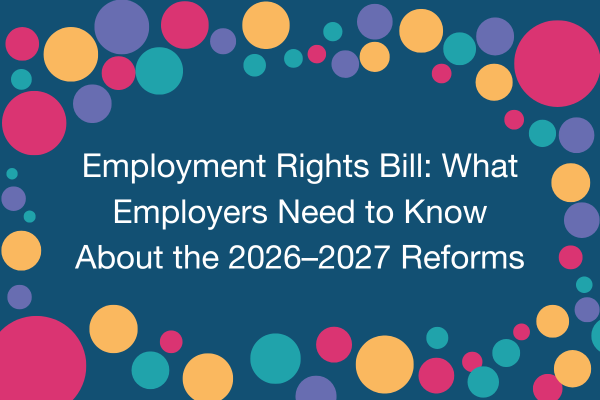News
Employment Appeal Tribunal decision finds that there may be a need to warn employees that a single act of particular misconduct may result in their dismissal

The Employment Appeal Tribunal (EAT) has recently issued a judgment in the case of Hewston v Ofsted in which it overturned a decision of the Birmingham Employment Tribunal and substituted its own judgment that Mr Hewston had been unfairly dismissed by Ofsted.
Facts
Mr Hewston was an Ofsted Inspector. He was conducting an inspection at a school in Birmingham. During his time at the school a group of children came in from outside where they had been caught in heavy rain and so were wet. Mr Hewston brushed rainwater from the hair or forehead of a student and put his hand on the student’s shoulder. The school complained to Ofsted about Mr Hewston’s conduct and also referred it to the Local Authority Designated Officer (LADO) who has responsibility for safeguarding concerns. The LADO concluded that there were no safeguarding issues arising from Mr Hewston’s conduct. The school asked that Ofsted consider raising awareness of professional boundaries with Mr Hewston. Ofsted investigated and concluded that the physical contact between Mr Hewston and the child amounted to gross misconduct and as a result Ofsted had lost trust and confidence in Mr Hewston. As a result he was summarily dismissed. Mr Hewston brought a claim of unfair dismissal. The Employment Tribunal rejected that claim concluding that the decision to dismiss for a first disciplinary offence of this nature fell within the range of reasonable responses which was open to Ofsted to reach in all of the circumstances.
Appeal
Mr Hewston appealed to the EAT who disagreed with the first instance decision by the Employment Tribunal and substituted a finding that Mr Hewston had in fact been unfairly dismissed. Key amongst the findings by the EAT was that Mr Hewston had not been warned, either in a written policy, training or otherwise, that a single act of physical contact of that nature, which was found not to give rise to any safeguarding concerns, was sufficient to result in dismissal. The Acas Code of Practice on disciplinary and grievance procedures states that ‘Disciplinary rules should give examples of acts which the employer regards as acts of gross misconduct.’ The EAT therefore considered whether the fact that Mr Hewston had never been informed by Ofsted that any degree of physical contact with a child during inspection may be considered to be an act of gross misconduct was sufficient to mean that the dismissal was unfair. The EAT held that there would be offences where the employee would or should realise that even a single occurrence of such conduct may result in the termination of their employment. However, in this case, where it was acknowledged that there was no safeguarding element or any ‘no touch’ policy within Ofsted, the fact that there was no written rule or policy or training provided to Mr Hewston to advise him that Ofsted may consider that type of physical contact as sufficient to result in his dismissal meant that the dismissal was unfair. The fact that Ofsted had not shared with Mr Hewston written communications from the school, the child or the LADO during the disciplinary process, despite the fact that the LADO findings were referred to within the dismissal letter, were further grounds on which the dismissal was found to be unfair.
Conclusions
This case emphasises the need for employers to identify within their disciplinary procedure or other documents that type of misconduct which may result in dismissal without prior warnings being given. The EAT acknowledged that it is impracticable for a disciplinary procedure to identify each and every offence which may result in a gross misconduct dismissal. However if, as here, the employer wants to identify particular conduct as potentially giving rise to a dismissal for a single offence, and it is not inherently obvious from the nature of the conduct that this would be the case, then employees should be forewarned of that. Employers should therefore keep their disciplinary procedures under regular review to ensure that it reflects the employer’s approach and priorities. The Dean Wilson LLP Employment Team advise employers on appropriate disciplinary procedures and how to implement them in practice. Contact Clare Waller crw@deanwilson.co.uk or Hermione Porter hep@deanwilson.co.uk for an initial discussion.



